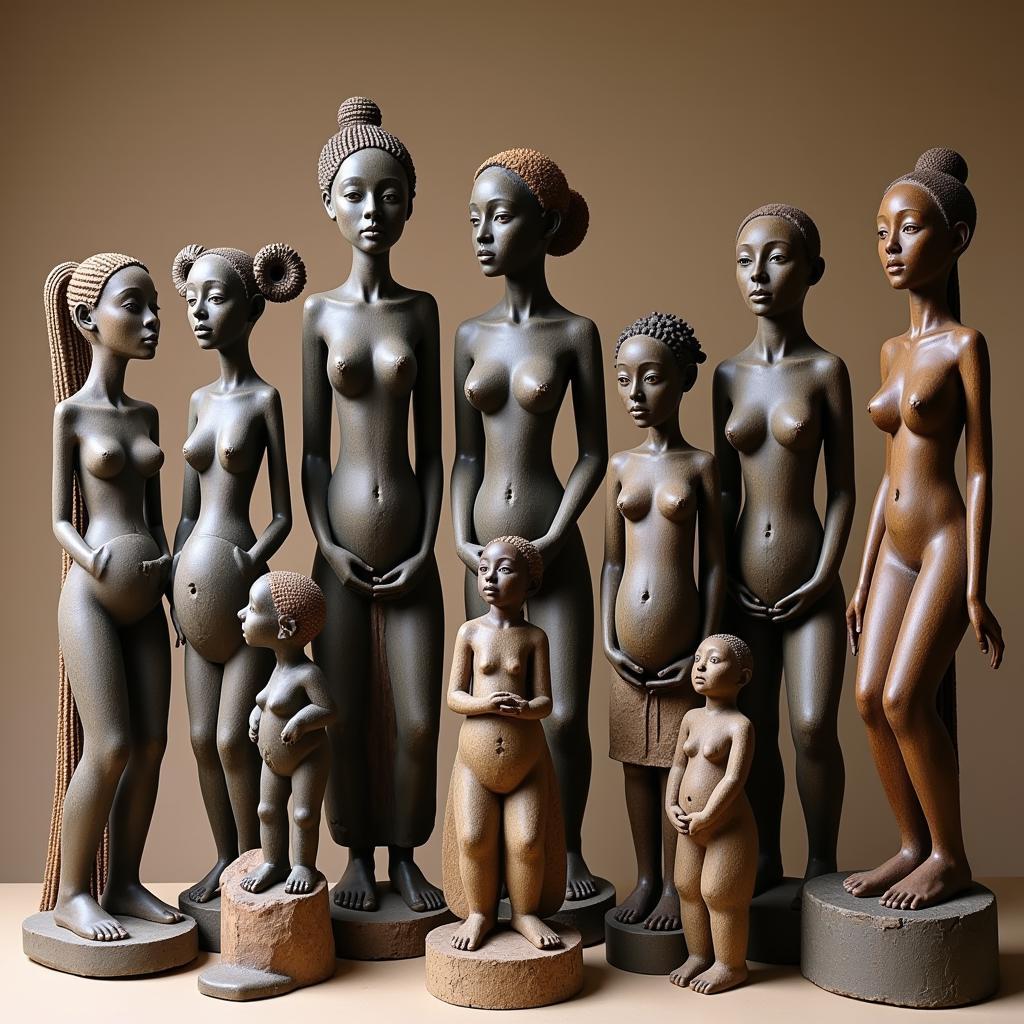African American Literature Syllabus: Exploring Literary Legacies
African American literature, a rich tapestry woven from centuries of resilience, struggle, and artistic brilliance, offers a profound exploration of the Black experience. An “African American Literature Syllabus” serves as a gateway to this powerful literary tradition, guiding students and enthusiasts alike through a curated selection of works that illuminate the diverse voices, perspectives, and historical narratives that have shaped African American identity.
Uncovering the Power of Storytelling: Key Themes in African American Literature
An African American literature syllabus often revolves around key themes that provide a framework for understanding the social, political, and cultural contexts within which these works were created. Some of these recurring themes include:
- The Legacy of Slavery and Segregation: From the harrowing narratives of Frederick Douglass and Harriet Jacobs to the searing prose of Toni Morrison and Alice Walker, African American literature grapples with the profound and enduring impact of slavery and segregation on individual lives and collective memory.
- The Quest for Identity and Belonging: Works by writers like W.E.B. Du Bois, James Baldwin, and Zora Neale Hurston explore the complexities of Black identity formation within a society grappling with racial prejudice and discrimination.
- The Power of Community and Resilience: African American literature often celebrates the strength and resilience of Black communities, highlighting the importance of family, faith, and collective action in the face of adversity. Works by authors like Richard Wright, Gwendolyn Brooks, and August Wilson exemplify this theme.
From the Harlem Renaissance to Contemporary Voices: A Chronological Journey
A comprehensive African American literature syllabus will likely take a chronological approach, tracing the evolution of this literary tradition through different historical periods:
- Early Narratives and the Abolitionist Movement: This period features slave narratives like those of Frederick Douglass and Olaudah Equiano, providing firsthand accounts of the horrors of slavery and fueling the abolitionist movement.
- The Harlem Renaissance: This vibrant cultural movement of the 1920s witnessed an explosion of Black artistic creativity. Authors like Langston Hughes, Zora Neale Hurston, and Claude McKay gave voice to the Black experience in new and innovative ways.
- The Civil Rights and Black Power Movements: Writers like Richard Wright, James Baldwin, and Lorraine Hansberry explored themes of social justice, equality, and Black empowerment during this era of social and political upheaval.
- Contemporary African American Literature: From Toni Morrison’s lyrical prose to Colson Whitehead’s experimental narratives and Jesmyn Ward’s powerful storytelling, contemporary African American literature continues to push boundaries and engage with pressing social issues.
 A bookshelf filled with classic and contemporary African American literature
A bookshelf filled with classic and contemporary African American literature
Beyond the Page: Engaging with African American Literature
Engaging with an African American literature syllabus is more than just reading a list of books. It’s about immersing oneself in the richness of Black culture and history. Here are some ways to deepen your understanding:
- Explore Historical Context: Research the historical events and social movements that influenced the authors and their works.
- Engage in Critical Analysis: Consider the literary techniques used by authors and how they contribute to the themes and messages of the texts.
- Seek Out Diverse Voices: Make an effort to read works by authors from a variety of backgrounds and experiences within the African American community.
- Connect to Contemporary Issues: Reflect on how the themes explored in these works resonate with contemporary social and political issues.
African American Literature: A Vital Legacy
An African American literature syllabus offers a gateway to understanding the complexities of the Black experience, the power of storytelling, and the enduring legacy of these literary works. It’s a journey of discovery, one that can challenge perspectives, spark dialogue, and inspire a deeper appreciation for the richness and resilience of African American culture.
FAQ
1. Why is African American literature important?
African American literature provides crucial insights into the Black experience, offering historical perspectives, exploring social and political issues, and celebrating cultural richness. It amplifies voices that have often been marginalized and contributes to a more inclusive understanding of American literature and history.
2. What are some key characteristics of African American literature?
Key characteristics often include a focus on themes of race, identity, social justice, and the legacy of slavery. It also encompasses a wide range of genres and writing styles, reflecting the diversity of experiences within the African American community.
3. How can I find a good African American literature syllabus?
You can often find syllabi online from universities and colleges offering African American literature courses. Additionally, many resources are available through libraries, bookstores, and literary organizations.
Further Exploration
For those interested in delving deeper into specific aspects of African American literature, the following resources may be helpful:
- African American Women’s Literature Syllabus
- A History of South African Literature
- 20th Century African American History Syllabus
These resources provide additional perspectives and contexts for understanding the richness and diversity within African American literature.
Need further assistance?
Contact us at:
Phone: +255768904061
Email: kaka.mag@gmail.com
Address: Mbarali DC Mawindi, Kangaga, Tanzania.
Our dedicated team is available 24/7 to assist you with any inquiries.



